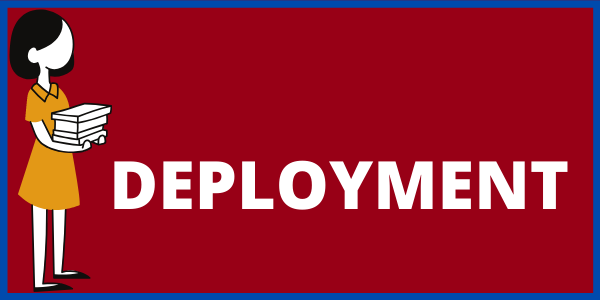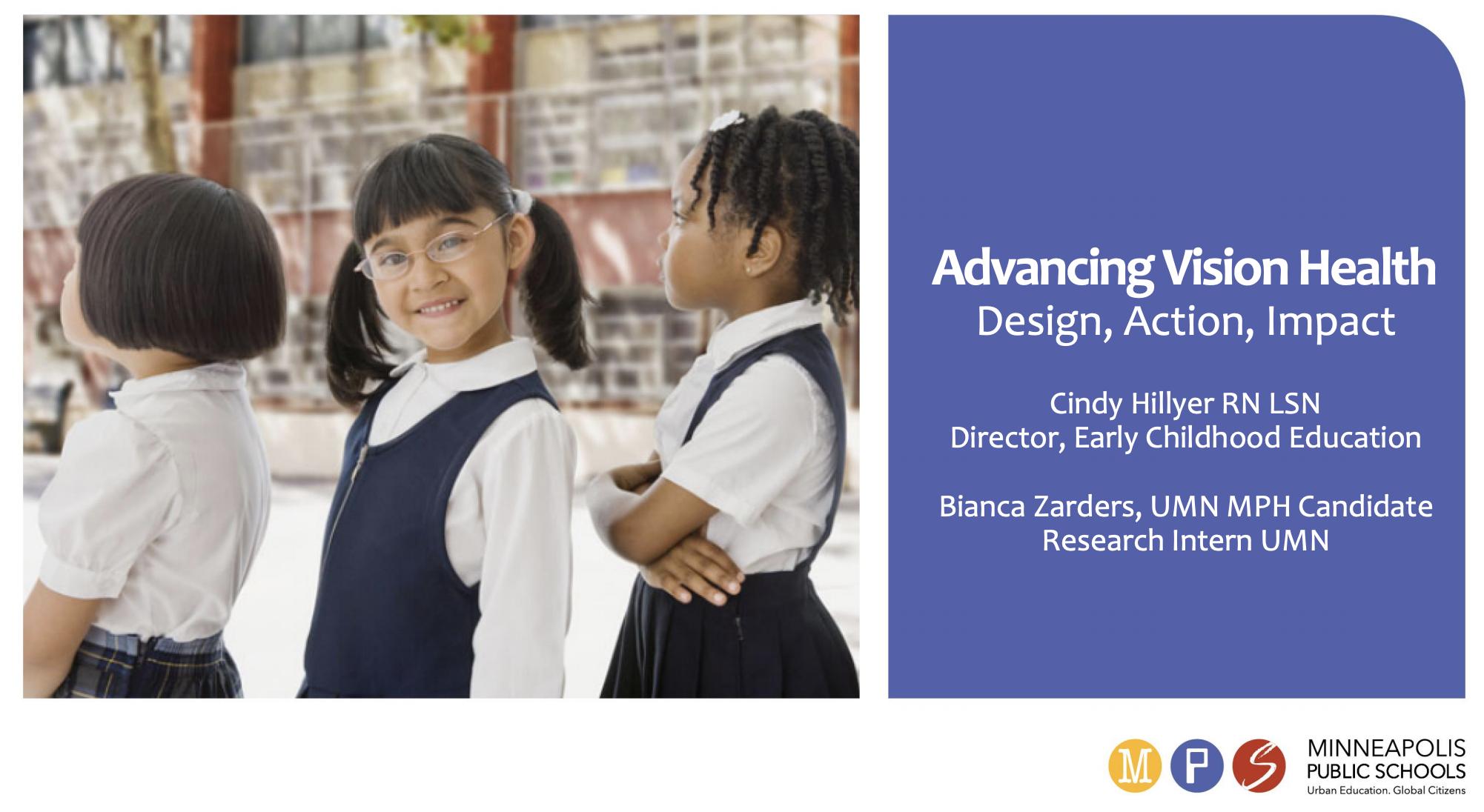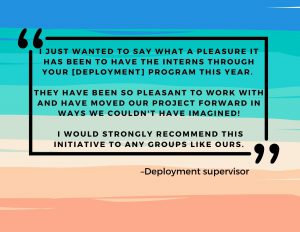Title V-funded programs are housed at MDH in the Child and Family Health Division. We support the MCH Section’s mission of providing statewide leadership and public health information essential for promoting, improving, or maintaining the health and well-being of women, children, and families throughout Minnesota.
Title V MCH Health Needs Assessment
As a part of the Title V MCH Block Grant, every five years representatives  of MDH’s Community and Family Health Division complete a comprehensive needs assessment to better understand the current state of health and well-being of women, children, and families in the State of Minnesota. Funded through a Center deployment, MCH trainees had a core role in the needs assessment, resulting in:
of MDH’s Community and Family Health Division complete a comprehensive needs assessment to better understand the current state of health and well-being of women, children, and families in the State of Minnesota. Funded through a Center deployment, MCH trainees had a core role in the needs assessment, resulting in:
- A write up of 2018-2019 needs assessment for a final report to the community
- Assistance in facilitating the needs assessment process for evaluative purposes
- Partnering with senior research scientists to develop the monitoring processes for measures and indicators associated with each new statewide priority
- Assistance with developing the ongoing needs assessment plan for 2020-2024
- Creating data briefs, posters, and toolkits on topics including:
Read more about UMN MCH students’ experiences working directly with Title V:
Strategy Action Team


We assisted MDH’s Division of Child and Family Health in the development of an evidence-based strategy action plan. A trainee completed a preliminary strategy literature searches on priority needs. Utilizing a semi-structured strategy evaluation process, she created a written summary of effective strategies for consideration in the MCH strategy development process. The findings were digested in a written report for each of 8-10 priority area teams to consider in their decision making process for strategy selection.
Center faculty also serve on the Minnesota’s statewide MCH Advisory Task Force (see the Committee and Advisory Service tab).
Want to learn more about MDH? Check out the MDH tab.
The Minnesota Department of Health (MDH) provides disease prevention and control, health promotion, community public health, environmental health, health care policy, and registration of health care provider services. Recent TA to MDH has included (but is not limited to) the following:
MN Perinatal Quality Collaborative (MNPQC)
The MNPQC is funded by a five-year grant provided by the Centers of Disease Control and Prevention (CDC), and was awarded to the MDH in 2017. Comprised by a multidisciplinary, multi-partner organization MNPQC uses quality improvement (QI) principles to improve maternal and infant health outcomes in Minnesota. A Center deployment provided a trainee with the opportunity to work closely with the MNPQC team to:
- Conduct literature reviews and analyze current evidence-based interventions for QI MNPQC projects on pre-eclampsia, neonatal abstinence syndrome and 17-hydroxyprogesterone (17-OHP)
- Develop data metrics/measures and analysis for QI projects
- Coordinate and plan statewide initiatives focused around Alliance for Innovation on Maternal Health (AIM), incorporating safety bundles supported by the MNPQC in hospitals and birthing centers in Minnesota
- Create national benchmarks for maternal health QI
- Conduct a literature review for current research/reports on women’s health
- Assist with the development of evidence-based practice materials to be used in the MNPQC
- Assist with the development of social media campaigns and awareness building
- Identify federal, state, local or philanthropic grant funding sources to support interventions, programs, and research in MCH populations.
Minnesota Maternal Mortality Review Project (MMMRP)

The MMMRP is a statewide initiative to improve the health outcomes for pregnant women, by preventing maternal death through developing recommendations from case reviews. An MCH student was able to:
- Conduct an extensive literature review on legislative changes and current legislation on maternal mortality and severe maternal morbidity in the US
- Assist in the development of a white paper and topic briefs
- Assist in organization and data collection, and data compilation and entry, for review project and data collection protocol
- Develop and finalize evaluation assessment questions
- Develop and assess the feasibility of work group quality improvement projects
- Create learning tools
- Conduct a literature review and analyze existing data sets/sources to develop metrics for future projects on improvement of maternal health
Want to learn more about Title V work at MDH? Check out the Title V tab.
Hennepin County WIC (Women, Infants and Children)

Hennepin County Public Health (HCPH) serves the largest county in Minnesota,providing health promotion through MCH services including WIC, home visits, prenatal care, and well-child visits. WIC is a nutrition and breastfeeding program that serves pregnant women, new mothers, babies, and young children. Nutrition education and counseling are the cornerstones of this public health program.

WIC helps families make positive nutrition and health decisions and put more fresh and healthy food on the table. WIC also offers breastfeeding support and referrals to health and social services. An MCH trainee worked to analyze WIC data and develop methods to present findings to the team of nutritionists in a user-friendly format. Activities included:
- Reviewing internal, local, and national WIC analyses and reports
- Analyzing WIC data and identify differences in access and use of services
- Identifying opportunities for enhancing health of WIC families
- Reporting key findings from HCPH WIC data
- Assisting in the development of community engagement/outreach activities
Better Together Hennepin

 An MCH trainee worked with the Hennepin County Better Together assessment team to analyze and report data specific to child and adolescent health in Hennepin County. Indicators include physical health, mental health, access to health/mental health care, oral health, and community well-being for children and adolescents. Tasks include:
An MCH trainee worked with the Hennepin County Better Together assessment team to analyze and report data specific to child and adolescent health in Hennepin County. Indicators include physical health, mental health, access to health/mental health care, oral health, and community well-being for children and adolescents. Tasks include:
- Reviewing child and adolescent health indicators
- Analyzing existing datasets to develop and/or update child and adolescent health indicators
- Reporting on updated child and adolescent health indicators
- Developing interactive visualization of indicators
 Our Minnesota team, led by Minneapolis Public Schools (MPS) Office of Early Childhood Education, was one of eight selected to participate in a Better Vision Together-Community of Practice, which was convened by the National Center for Children’s Vision and Eye Health at Prevent Blindness (NCCVEH). The goal of this two-year project was to improve vision and eye health in vulnerable populations of young children.
Our Minnesota team, led by Minneapolis Public Schools (MPS) Office of Early Childhood Education, was one of eight selected to participate in a Better Vision Together-Community of Practice, which was convened by the National Center for Children’s Vision and Eye Health at Prevent Blindness (NCCVEH). The goal of this two-year project was to improve vision and eye health in vulnerable populations of young children.
 The NCCVEH worked with the Community of Practice to implement actions and solutions anchored in population health strategies through a peer-support approach, including policy change, systems of vision and eye health, public awareness, and data collection.
The NCCVEH worked with the Community of Practice to implement actions and solutions anchored in population health strategies through a peer-support approach, including policy change, systems of vision and eye health, public awareness, and data collection.
- Learn more about Task Force organizational members, efforts and progress, presentations, and more by visiting the Task Force webpage.
- Learn about Task Force deployments by reading Student Spotlights.
 The Bright Spots Qualitative Research Methods Mini-Lab offers participants the space to build or augment the qualitative research skills they’ve learned in classrooms or while at work in their agencies. Together with trainers, MCH and MCH nutrition students, faculty, and other MCH and nutrition colleagues, participants gather regularly for training sessions labs that provide them with an opportunity to consult with experts on activities that strengthen their skills.
The Bright Spots Qualitative Research Methods Mini-Lab offers participants the space to build or augment the qualitative research skills they’ve learned in classrooms or while at work in their agencies. Together with trainers, MCH and MCH nutrition students, faculty, and other MCH and nutrition colleagues, participants gather regularly for training sessions labs that provide them with an opportunity to consult with experts on activities that strengthen their skills.
We are active on many state and national committees that impact MCH populations and serve on review/advisory functions. Some recent or current involvement includes:
The above is not exhaustive. If you’re interested in having someone with the Center serve in an advisory capacity, please email mch at umn.edu.
Through our MCH Practitioner-Academic Training Partnership, MDH professionals will begin co-teaching content on Title V and other MCH legislation, the Title V needs assessment process, and National Performance Measures. MCH students learn directly from practitioners currently involved in the development, delivery and evaluation of Title V services, which helps prepare our students to enter the MCH workforce in these and similar agencies.
Current academic practitioners include:
*MCH Program Alumni
The TA Corner showcases how Center-affiliated faculty, staff and students are providing TA to a variety of agencies and organizations.







